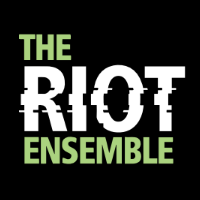Exploring Norway’s fringe music scene at Only Connect
Hello, Tim here, Riot’s resident writer. Last month I travelled to Oslo for the annual Only Connect Festival of Sound and I’d like to tell you about it!
Only Connect is organised by Norway’s principal organisation for new music, nyMusikk and curated by the indefatigable Anne Hilde Neset. In fact, nyMusikk supports two such festivals – the other is Ultima, held in September. I’ve been fortunate to have been a guest of both in the last year, and so had plenty of opportunity to sample Norway’s generous hospitality, and marvel at the level of funding and support even the fringiest of new music activities can receive there.
One doesn’t want to get too misty-eyed – after all, a large percentage of Norway’s prosperity and social democratic largesse is based on the exploitation of offshore gas and oil fields. Yet it’s telling that at least two banks in Oslo have been converted into arts venues. (Try to imagine the same happening in London. No, me neither.) The National Museum of Contemporary Art is in one, although that’s moving to new premises soon and the exhibitions currently on show are among the last in its present location. Sentralen, which is a couple of blocks away from the Contemporary Art Museum and which opened last year, is another. It is now a multi-purpose performance arts space, meeting place, restaurant and bar, and chief venue for both Only Connect and Ultima.
In fact an enjambment of two buildings, joined by a narrow, four-storey atrium and a network of Hogwarts-esque staircases, Sentralen’s best feature is its grand marble hall (Marmorsalen), in which larger concerts are presented. Hearing in this most refined and establishment of spaces Julius Eastman’s ferociously counter-cultural Evil Nigger – in a barnstorming three-piano rendition by Heloisa Amaral, Elisa Medinilla and Frederik Croene – was a heart-stopping experience I won’t forget in a long time.
Harry Potter stairs. Photo by the author.
Indeed, the relationship between money and music was an unintended thread through my experience of Only Connect. One can argue, for example, whether a well-funded contemporary arts community promotes risk or complacency. And cases can be made on either side of that argument, even by Norwegians themselves. Yet I detect within Norwegian new music, and particularly among its younger proponents, a real sense of mischief. Not born of the profound political dissatisfaction that Eastman was forced to bear, but nevertheless coming from a discomfort with the way things are. Ultima’s artistic director, the composer Lars Petter Hagen, is a chief agitator – among his most notorious works is To Zeitblom, a folkloristic concerto for Norway’s national instrument, the Hardanger fiddle, that undermines itself through the insertion of a comically mistranslated recitation of passages from Theodor Adorno’s 1954 article ‘The Aging of the New Music’. Trond Reinholdtsen also enjoys a good prank, and is probably Norway’s chief exponent of musical conceptualism. At Ultima last year I saw his sort-of piano concerto more-like reality TV gone wrong Theory of the Subject, which featured the soloist still rehearsing backstage while the orchestra ploughed on, being usurped by a Nancarrow-esque player piano and finally retreating to a sanctuary beneath the piano itself, with subplots of messianic cults and demonic renditions of the 20th century’s piano repertory along the way.
The cheekiest offering at Only Connect was undoubtedly Øyvind Torvund’s The Exotica Album, performed by Bergen’s BIT20 Ensemble, saxophonist Kjetil Møster and analogue synth player Jørgen Trœen. (BIT20, by the way, are now directed by an expat Brit, the composer and artist Alwynne Pritchard, who was herself director of Bergen’s Borealis Festival for several years.) Two stages were set out – one for BIT20’s fifteen or so players, the other for Møster and Trœen. For the most part, the latter duo improvised (in a more or less organised fashion) noisy bleeps and skronks. BIT20, meanwhile, recreated the cheesy listening lounge atmosphere of a Les Baxter or Martin Denny record – bongos, maracas, vibes, sleazy flute lines and all. Billed as ‘two concerts at the same time’ it didn’t quite fulfill that promise – the phrases between the two groups were too interwoven for that – but the collision of two dramatically distinct soundworlds, neither of them familiar territory for a contemporary classical setting, revealed Torvund’s exciting disregard for genre conventions and wry skill at bringing alien elements into a traditional context.

BIT20, Kjetil Møster and Jørgen Trœen. Photo by Anne Valeur.
The other Norwegian works on show – the festival’s middle day celebrated the 100th Norwegian Society of Composers – were more conventional, perhaps with the exception of Mistérios de Corpo by composer and asamisimasa clarinettist Kristine Tjøgersen, a live soundtrack for string quartet synchronised with and overwriting the video of the same name by 70-something Brazilian jazz musician Hermeto Pascoal in which he plays his naked torso as a percussion set. Nevertheless, Håkon Thelin managed to incorporate a traditional willow flute player and a cabaret atmosphere into his double bass concerto The Ark, and even Jon Øivind Ness’s Meditasjonar over Georges de la Tour nr. XVII, a relatively modest piece for mezzo-soprano and piano, folded an enigmatically dogged piano part (the two hands played in rhythmic unison almost throughout) beneath an exuberant vocal line, sung on this occasion by Elisabeth Holmertz.
This was Neset’s sixth and final Only Connect festival as nyMusikk’s Artistic Director. Her personal warmth and artistic curiosity have undoubtedly done much to bring out Norway’s weirder side. Who can say what may come next – the Nordic Music Days in London this September, which will feature the Riot Ensemble, may offer some more clues – but Norwegian audiences certainly seem to have acquired a taste for the strange. I would bet on something unexpected.


